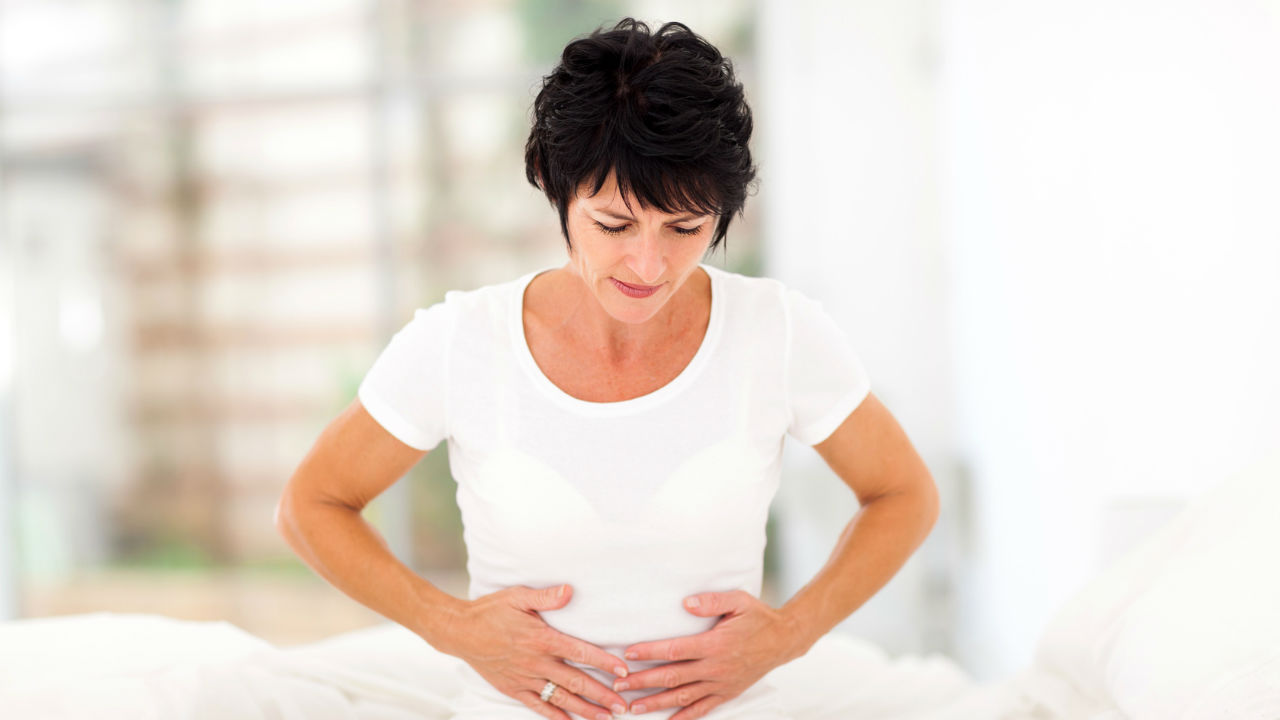Irritable bowel syndrome (IBS) is a disorder of the gastrointestinal tract. In the United States, 20% of the population experiences the symptoms of IBS. Women are affected three times more often than men.
In 50% of the cases, symptoms manifest before the age of 35. The cause of IBS is not known, but it is believed that the gastrointestinal tract of individuals with IBS is extra sensitive to stimuli. The symptoms of IBS can be triggered by stress, diet, and hormones.
Stress: The nervous system controls the muscle movement in the colon. Stress and depression may contribute to the abdominal spasms associated with IBS. If you are able to identify the types of stress or causes of depression, especially associated with the holiday season, avoiding these situations may relieve your symptoms. Keeping a diary of your emotional state and the occurrence of IBS will help to identify stress triggers. Learning stress management techniques such as yoga and mediation can be helpful.
Diet: Most treatment plans for IBS focus on diet. A low-fat, high-fiber diet is effective in treating mild cases of IBS. Increasing fiber intake by 2 to 3 grams per day will decrease the risk of increased flatulence (gas) and bloating. The artificial sweetener, sorbitol, as well as fructose, may aggravate diarrhea. Patients with IBS who are also lactose intolerant should avoid dairy products. Some common triggers include chocolate, fatty foods, caffeine, and large amounts of alcohol. If increased bloating and flatulence are your symptoms, try avoiding the foods, such as beans and cabbage, that produce these symptoms. Keeping a diary of your daily dietary intake and IBS symptoms will help you and your physician formulate the right plan of treatment for you.
Monitoring your dietary intake and alcohol consumption especially in this season of holiday feasts and parties, can be beneficial to your well being. Drinking 6 to 8 glasses of water daily is important, especially if you experience diarrhea. Consuming carbonated beverages, chewing gum, and eating too quickly can lead to increased gas production. Eating smaller meals more often or eating smaller portions may reduce IBS symptoms.
Hormones: IBS symptoms appear to worsen during menstruation. The belief is that the female reproductive hormones may act as triggers.
IBS can cause a great deal of discomfort and distress. It does not cause lasting damage to the intestinal tract or cancer. A person with IBS can lead a normal life if empowered with knowledge. Diagnosis and treatment of IBS should always be provided by a physician, who can prescribe medications such as a laxative to treat constipation or medication such as Lomotil to treat diarrhea, and an antispasmodic medication to reduce abdominal pain.
www.digestive.niddk.nih.gov
www.hmc.psu.edu/health
Maryann Gromisch is a registered nurse with clinical experience in medical, surgical, and critical care nursing, and assisting a gastroenterologist in a private practice setting.






Add a CommentComments
There are no comments yet. Be the first one and get the conversation started!